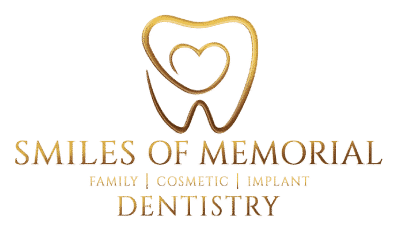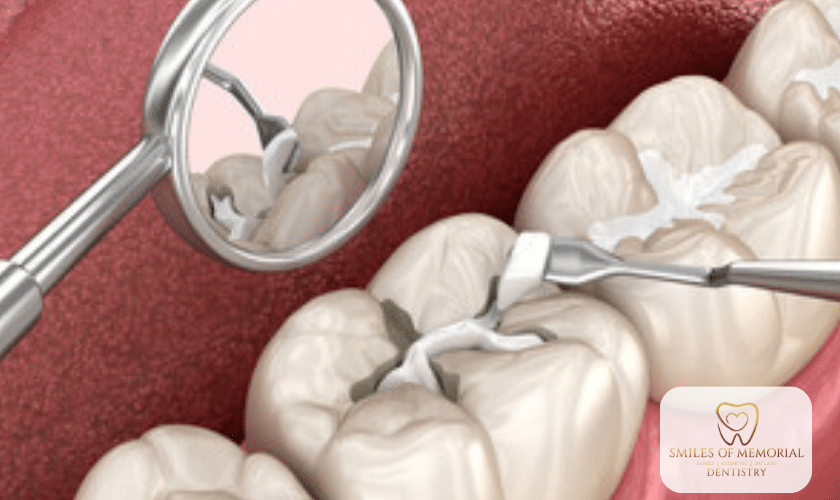Your smile is one of the first things that people notice about you, and it’s important to keep it looking its best. However, maintaining good oral health can be a challenge, especially when it comes to preventing cavities. That’s where dental sealants come in! These small but mighty tools can help protect your teeth from decay and keep your pearly whites shining bright for years to come. In this blog post, we’ll explore what dental sealants are, how they work, and when you should consider getting them. So sit back, relax, and get ready to learn all about this powerful tool in the fight against cavities!
Contents
What Are Dental Sealants?
Dental sealants are a protective coating applied to the chewing surfaces of your teeth, particularly molars and premolars. These areas are more prone to cavities as they have deep grooves and fissures that can trap food particles and bacteria. The sealant acts as a barrier between these vulnerable areas of your teeth and harmful cavity-causing agents.
The material used for dental sealants is usually made up of plastic or resin composite that hardens quickly on exposure to ultraviolet light. It is painless, easy to apply, and can last for several years with proper oral hygiene practices.
Sealants come in two types: clear or white-colored options. Clear sealants blend better with natural tooth color while white-colored ones provide additional protection against stains.
It’s essential to note that dental sealants aren’t suitable for everyone. They’re mostly recommended for children who have newly erupted permanent teeth but may also be useful for adults at high risk of developing cavities.
Dental sealants act as an excellent preventive measure against tooth decay by sealing off vulnerable spots in your molars or premolars before further damage occurs.
Types Of Dental Sealants
When it comes to dental sealants, there are two main types: resin-based and glass ionomer. Resin-based sealants are the most common type used by dentists. They consist of a plastic material that is applied to the chewing surfaces of teeth and then hardened with a special light.
Glass ionomer sealants are less commonly used but offer some unique benefits. These sealants release fluoride over time, which can help strengthen teeth and prevent cavities from forming.
Another type of dental sealant is called a pit-and-fissure sealant. This type is specifically designed for molars and premolars, which have deep grooves on their biting surfaces that can be difficult to clean properly. Pit-and-fissure sealants fill in these grooves, making it easier to keep teeth clean and reducing the risk of cavities.
Ultimately, the type of dental sealant that your dentist recommends will depend on your specific needs and preferences. But whether you opt for resin-based or glass ionomer options, getting dental sealants can be an effective way to protect your teeth from decay – especially if you’re prone to cavities or have difficulty keeping certain areas of your mouth clean.
How Do Dental Sealants Work?
Dental sealants are a thin, protective coating applied to the teeth to prevent cavities. They work by creating a barrier between the tooth and harmful bacteria that can cause decay.
To apply dental sealants, your dentist will first clean and dry your teeth. Then they’ll apply an acid solution to roughen up the surface of your teeth, which helps the sealant bond better. After rinsing off the acid solution and drying your teeth again, your dentist will paint on the sealant material using a small brush or applicator.
Once applied, dental sealants harden quickly under a special light. This creates a durable shield over each tooth that can last for several years with proper care.
While brushing and flossing are still essential for good oral health, dental sealants provide an extra layer of protection against cavities in hard-to-reach areas like molars where food particles often get trapped.
Dental sealants offer an effective way to keep your teeth healthy and cavity-free. With regular checkups from your dentist and proper oral hygiene habits at home, you can enjoy strong and healthy teeth for years to come!
When Should You Consider Getting Dental Sealants?
Dental sealants can be a great preventive measure for those who are prone to developing cavities. But when should you consider getting them?
Firstly, it’s important to note that dental sealants are typically recommended for children and teenagers who have newly erupted permanent teeth. This is because they are more susceptible to cavities during this stage of life.
However, adults with deep grooves or pits in their teeth may also benefit from dental sealants. These areas can be difficult to clean properly with regular brushing and flossing, making them prime spots for bacteria and decay.
If you have a history of tooth decay or simply want added protection against cavities, then dental sealants may be worth considering. They provide an extra layer of defense against harmful bacteria that cause decay.
Ultimately, the decision to get dental sealants should be made in consultation with your dentist. They will assess your individual needs and determine whether this treatment is right for you.
Bottom Line
Dental sealants are an effective way to protect your teeth from cavities. They are easy to apply and can last for up to 10 years. Dental sealants work by creating a protective barrier on the surface of your teeth, preventing bacteria and food particles from getting in and causing decay.
If you have deep grooves or pits in your molars or premolars, then you should consider getting dental sealants. It’s also a good idea to get them if you’re prone to cavities or if you want extra protection against tooth decay.
Remember that dental sealants are not a substitute for regular brushing, flossing, and visits to the dentist. But they can be an excellent way to supplement your oral hygiene routine and keep your teeth healthy for years to come.
So why wait? Talk with your dentist today about whether dental sealants could benefit you.





